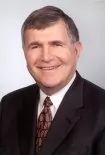Originally published in Les Nouvelles, June 2006, and LES Viewpoints, August 2005
Copyright © Finnegan, Henderson, Farabow, Garrett & Dunner, LLP
In his recent book, THE WORLD IS FLAT, Thomas Friedman illustrates how modern communications and fewer political barriers have added billions of potential competitors to the marketplace and added billions of potential customers. In a breathless tone, he suggests few in the developed world (if that classification still has meaning) have been paying attention and may face diminishing prospects if they fail to act.
Part of the book focuses on the current popular concern, outsourcing. Friedman makes the case that, despite short term labor disruptions, outsourcing from one country to another will be a net positive for all in a flat world. As career advice in the face of growing transnational outsourcing, he suggests entering a profession that is either highly specialized or by its nature is geographically anchored.
Friedman concedes that the world of innovation is not yet flat; the U.S., Europe and Japan remain the source of innovation for the time being. He also warns that leadership in innovation will become diluted as the massive investment in technical education made by China, India and former Soviet countries takes effect.
As I read Friedman’s numerous examples, I was wondering where licensing as a function and a profession belonged in his flat world. While the demise of certain political barriers may have facilitated the process, it seems apparent that technology and its transfer made the world flat. India’s dynamic service industry began with the transfer of high speed communications technology and computer hardware and software technology. China would not have its growing manufacturing industry without transfer to China of the product and manufacturing technology. Certainly some of the technology transfer has been "under the table," but licensing has been the basis for most of it.
To date, licensing as a function and a profession has been a major contributor to this flat world. Indeed, contrary to the suggestion by Mr. Friedman that the public is unaware, most licensing professionals are very aware of the flatter world. Licensing has had an international component since the advent of the 20th Century, but certainly over the last 20 years, licensing has focused on the international market. The licensing profession has been aware of the trends all along. LES has been a source of that information. The archives of les Nouvelles illustrate the point. The program for the 1980 USA/Canada annual meeting included a workshop on "Practical Problems in the China Trade" and the December 1980 issue of les Nouvelles included an article entitled "Practice of Licensing with China" by Christoph Kamm. The December 1982 issue included articles such as "Transferring Technology in India" by Ashwani Kumar and "Selling Technology to PRC" by Shogo Nojima.
It is interesting to note that LES was teaching how to license in China and India, among other countries, long before the elimination of the political barriers Friedman identifies. It is true that political change in the former countries of the Soviet Union, China and India have made the transfer of technology and the commercialization of that technology much easier, but licensing professionals were transferring technology to and from those countries long before it was easy.
Does licensing as a function have a future in this flatter world? No doubt. Technology will remain the driving force of the world economy. Its transfer from an innovator, to a developer, to a manufacturer in various countries will continue and no doubt grow. The pace of such transfer will accelerate, requiring the licensing process to become more efficient. Industry in a flatter world will not tolerate a process that is an obstacle to transfer of technology at the speed of light. If Mr. Friedman’s warnings prove true, the majority of technology transfer of the future may be from India or China to the United States or Europe, but the function performed by licensing professionals will remain necessary.
Can the licensing function be outsourced from North America? Today a licensing transaction and associated documents are more likely than not to be in the U.S. style and in English. This may be the result of the U.S. having been the source of much of the technology transferred over the past 50 years. As the world becomes flatter and the sources of innovation change, the licensing function may change to reflect a new source. Properly trained, a licensing professional has a specialty that will be in demand regardless of the source of the technology or the style or language of the process.
All licensing professionals today must have the skills necessary to function internationally. New skills will be needed as the flatter world evolves. Indeed, Mr. Friedman suggests the only way to succeed in the new world is to be adaptable and to continually improve skills. LES will prepare its members for this future. This will require a greater emphasis on international issues, processes, legal systems and cultures. At the upcoming Annual Meeting in Phoenix, LES (USA and Canada), in conjunction with LES International committees, will devote a large part of the Wednesday program to international licensing. At the same time, LES International is reevaluating its mission and purpose and hopefully will undertake as a goal to provide through its member Societies education on international issues.
While change can be disruptive, it also can be invigorating. LES is up to the challenge offered by this flatter world. Are you?
The content of this article is intended to provide a general guide to the subject matter. Specialist advice should be sought about your specific circumstances.
